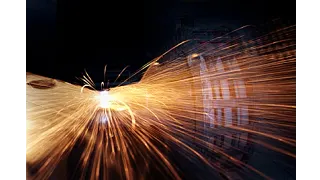Change Language :
Halogen-free cables - what are they?
What is a halogen-free cable? One speaks of halogen-free cables if no materials with elements from the halogen group have been processed in cables. Halogens, e.g. chlorine, are excellent insulators as non-conductors and are therefore often used as jacket material for cables. The most common example of this is polyvinyl chloride (PVC). But the use of halogens also carries risks.
When a plastic containing halogens burns, these halogens are released from the jacket and get into the breathing air. The combination with water produces an acid that is toxic to humans. Halogen-free is therefore particularly important if the user has to pay particular attention to the danger posed by a potential fire.

Where are halogen-free cables used?
Great attention should be paid to the use of halogen-free cables, especially in applications with increased fire hazard. So if a cable is used where there is an increased risk of fire, the absence of halogen excludes a risky source of hazard. For this reason, specifications clearly stipulate that only cables that are halogen-free are used in such applications.

Advantages of halogen-free cables
Halogen-free cables are free of elements such as bromine, fluorine, iodine or chlorine, which are all very reactive. Compared to conventional PVC-insulated cables, there are some advantages in case of fire. In the case of halogen-free cables no toxic or corrosive gases are released in a fire, which could be a threat to humans or buildings. In contrast to PVC cables, a dangerous elimination of halogen-containing combustion gases can be ruled out. Halogen-free cables can be used at higher temperatures than PVC cables.
In addition to halogen-containing PVC cables, igus also uses halogen-free cables with jacket materials made of PUR (polyurethane elastomers) and TPE (thermoplastic elastomers). These are manufactured in accordance with DIN EN 60754 and thus meet the halogen-free requirements.